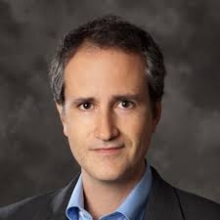EECS Seminar: Graph Signal Processing - Theory and Applications

Professor
Signal and Image Processing Institute
Department of Electrical and Computer Engineering
University of Southern California
Abstract: Graphs have long been used in a wide variety of problems, such as in analysis of social networks, machine learning, network protocol optimization or image processing. In the last few years, a growing body of work has been developed to extend and complement well known concepts in spectral graph theory, leading to the emergence of Graph Signal Processing (GSP) as a broad research field. GSP methods consider the data attached to the vertices as a "graph signal" and seek to create new techniques (filtering, sampling, interpolation), similar to those commonly used in conventional signal processing (for audio, images or video), so that they can be applied to these graph signals. In this talk, we first introduce some basic graph signal processing concepts, providing a brief overview of wavelet graph filter banks, sampling of graph signals and graph topology learning. We illustrate the basic concepts with example applications in image/video processing and machine learning.
Bio: Antonio Ortega received his undergraduate and doctoral degrees from the Universidad Politecnica de Madrid, Spain, and Columbia University, New York, respectively. In 1994, he joined the Department of Electrical Engineering at the University of Southern California, where he is currently a professor and has served as associate chair. He is a fellow of the IEEE and EURASIP, and a member of ACM and APSIPA. He is the editor-in-chief of the IEEE Transactions of Signal and Information Processing over Networks and recently served as a member of the Board of Governors of the IEEE Signal Processing Society. He has received several paper awards, including the 2016 Signal Processing Magazine award. His recent research is focusing on graph signal processing, machine learning, multimedia compression and wireless sensor networks. Over 40 doctoral students have completed their Ph.D. theses under his supervision, and his work has led to over 400 publications in international conferences and journals, as well as several patents.
Host: Yanning Shen
Share
Upcoming Events
-
MSE 298 Seminar: Ionic Correlations in Polymer Nanostructures - From Block Copolymers to End-Charged Blends
-
MAE 298 SEMINAR: Co-Designing Mutual Aid Transportation for Disaster Resilience
-
CBE 298 Seminar: Engineering Strategies for Structural Heart Disease
-
MSE 298 Seminar: Radiation Resistance and Mechanical Response of Ceramics in Extreme Environments
-
MAE 298 SEMINAR: Stretchable Electronics for Soft Biological and Robotic Systems
